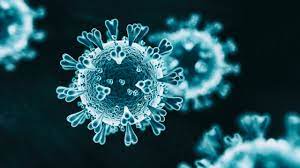Avoiding contact with the virus is the best way to stop it from spreading. These are the top ten ways to reduce the spread of COVID-19.
- If you’re eligible, get the COVID-19 vaccination.
COVID-19 vaccinations are safe, effective, and completely free. Anyone can benefit from the vaccine, and it is particularly important for those at higher risk of severe illness due to COVID-19.
- After any activity, wash your hands with soapy water for at most 20 seconds.
Before you eat or cook, always wash your hands. This includes coughing and blowing your nose. If soap and water are unavailable, use a bar of alcohol-based hand soap. Unwashed hands should not be used to touch your eyes, nose, or mouth.
- Use a mask or cloth for your face.
You should cover your nose and mouth indoors if you are 2 years old or less. While a cloth mask may not provide protection, it can help prevent the spread of the virus to others. The CDC suggests that COVID-19 sufferers in high-risk areas wear masks when outdoors in crowded settings. This is especially important for those who have had close contact with people not fully vaccinated or cannot keep social distance.
- Maintain social distancing. If possible, work from home and avoid crowds.
Maintain a distance of at least six feet from others who live with you. Avoid touching others, such as kissing, shaking hands, or hugging. Instead, try a hand wave or smile.
- Clean “high-touch” surfaces regularly.
Use household disinfectants to disinfect surfaces and objects frequently touched, such as tables, doorknobs and light switches, desks and phones, keys, keyboards, taps and faucets.
- Cover your coughs and sneezes
When you cough or sneeze, make sure to change to a clean mask immediately and wash your hands. You can also cover your nose and mouth with a tissue or elbow if you don’t have a mask. Toss any tissues in the trash and wash your hands immediately with soap and water. If soap and water are not available, you can use a block of alcohol-based hand soap.
- Monitor your health daily
Pay attention to symptoms. Look out for symptoms such as fever, cough, shortness of breathlessness. Take your temperature if symptoms develop. Find out when to seek medical attention and how to speak with a caregiver. Mildly ill people with COVID-19 can recover at home. You should not leave the house unless you need medical attention.
- When traveling, be sure to follow safety guidelines.
Do not travel until you have been fully vaccinated. You should check for restrictions on travel at your destination. Wear a mask to cover your nose and mouth at the airport and onboard. You should not travel if you have been exposed to COVID-19 or are sick.
- If you are going to be away for a long time, make sure you have enough food and water.
It would be best to have enough food, household goods, and medication (including over-the-counter medicines) to go around. Also, you need to know how you can order more online or by calling.
- Plan for when you become sick
Talk to your family and friends about the people who could help you if you become sick. Keep a list of all your current medications. You should have a list of people who can cook, deliver, or run errands for you.
Extra precautions for high-risk patients
It is recommended that people who are more at risk for COVID-19 should take extra precautions to remain safe. This applies to individuals who are:
- Are you over 60
- Heart disease
- Diabetic?
- Have lung disease, including asthma
- Are you taking immune suppression drugs

